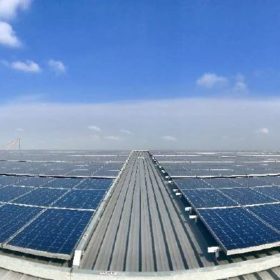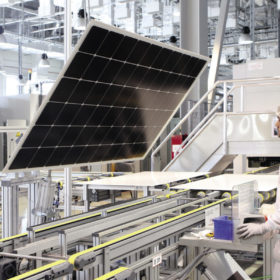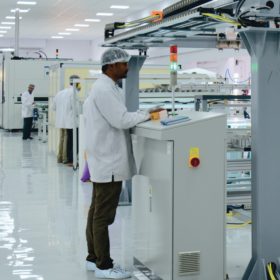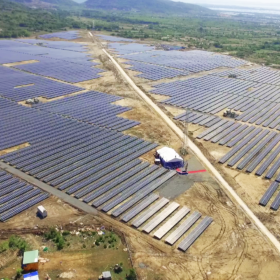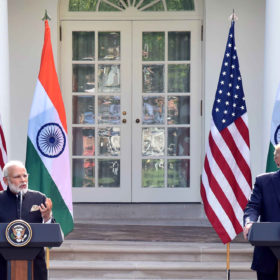Singapore’s Cleantech Solar secures US$75 million green loan from ING Bank
The commercial and industrial solar developer, which commands a significant share in the Indian market, will use the amount to fund rooftop PV installations for corporates across Southeast Asia.
MNRE seeks consultants for the global supergrid plan
July 6 is the last date to submit proposals for the ambitious ‘one sun, one world, one grid’ plan that aims at seamless sharing of renewable energy resources among countries for mutual benefits and global sustainability. The program has been taken up by the Ministry with assistance from the World Bank.
India’s solar module imports from Thailand double in 9 months
While China continues to be the top solar module exporter to India, Thailand doubled its module exports to India from $55.05 million in 2018-19 to $110.39 million during the first nine months (April-December) of the current fiscal. Vietnam’s module exports to India also rose sharply from $91.97 million to $127.21 million.
India’s lithium-ion battery imports increase fourfold in two years
China, Hong Kong and Vietnam are the top three nations exporting batteries to India. Chinese imports were worth $773 million in the last fiscal year with Hong Kong shipping $267 million worth and Vietnam $114 million, according to the Ministry of Commerce.
India’s solar cell and module exports grow 157% in eight months
Following a dip in the last fiscal year, the value of cell exports saw a massive surge to an estimated Rs133,000 lakh from April to November. Exports to the U.S. tripled during the eight-month period as shipments to Turkey and Belgium rebounded to become the next two biggest export markets.
Anti-dumping duty on coated steel will raise solar project costs by 2-4%: Care Ratings
India’s Directorate General of Trade Remedies (DGTR) has determined that flat steel products coated with aluminium and zinc are being dumped by manufacturers in China at dumping margins of 30-50%, South Korea (20-30%) and Vietnam (10-20%). It has proposed anti-dumping duty based on the same to offset material injury to domestic manufacturers.
“Let’s compete on quality and innovation”: Vikram Solar CFO
With India losing major solar markets to stiffer competition from cheaper products, it’s high time to change the game by playing on quality and innovation—according to Vikram Solar Chief Financial Officer Rajendra Kumar Parakh, who spoke to pv magazine on the challenge of shrinking markets before Indian solar manufacturers.
‘Anti-dumping duty on coated steel will impede solar growth’
Citing the risk to solar projects, lobby group the National Solar Energy Federation Of India has asked the Ministry of New and Renewable Energy to exclude flat steel products coated with alloy of aluminum and zinc from anti-dumping duty.
Waaree Energies commissions 49.5 MW in Vietnam
The Mumbai-based EPC contractor and module manufacturer expects its international business to account for more than 15% of its overall revenue. The company’s latest installation, in Vietnam, marks the completion of over 600 MW of solar EPC projects, with an additional 100 MW in its international pipeline.
India’s solar cell exports to USA lose preferential treatment
Having acted against Turkey, the Trump administration has removed India too from the list of nations exempt from import tariffs on solar cells and modules.
